Easily Send SMS to Korea, Republic Of with SMS API With our SMS API Services, you can effortlessly send text messages to your clients in Korea, Republic Of, and beyond. Our API is easy to set up, cost-effective and you can be up and running in no time.
*No credit card required
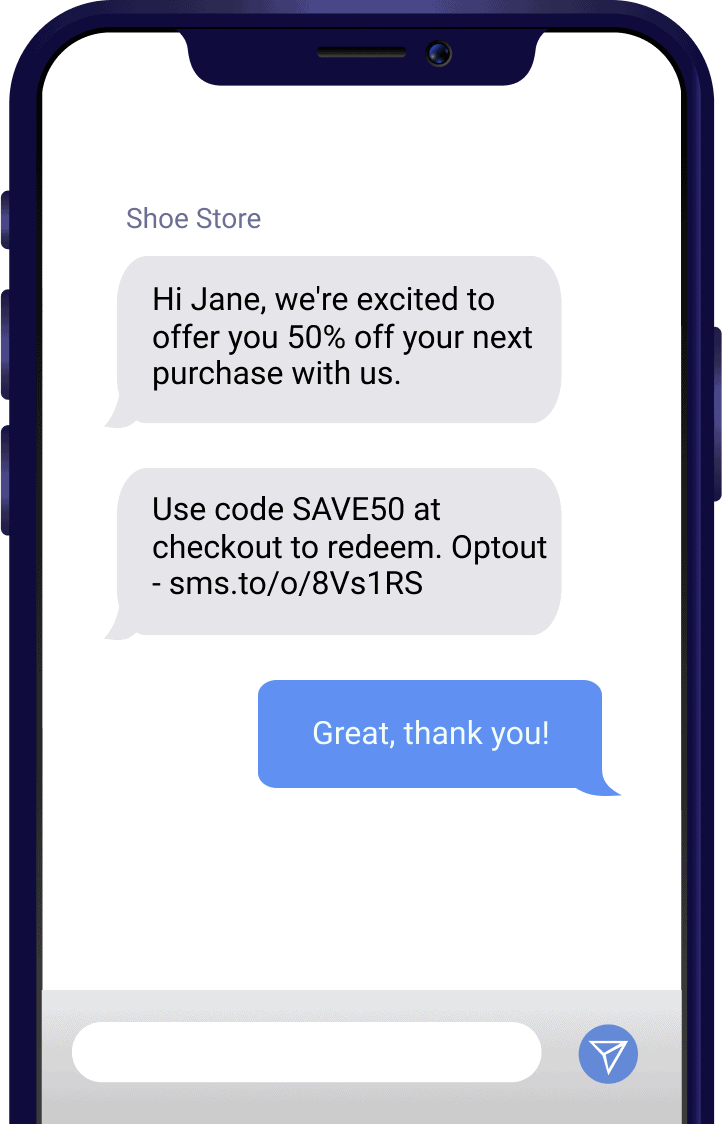
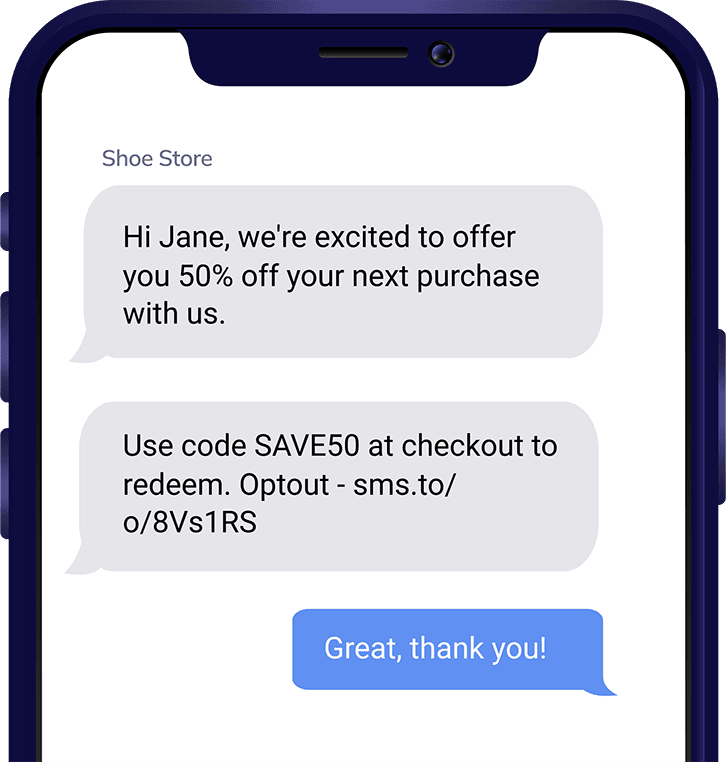
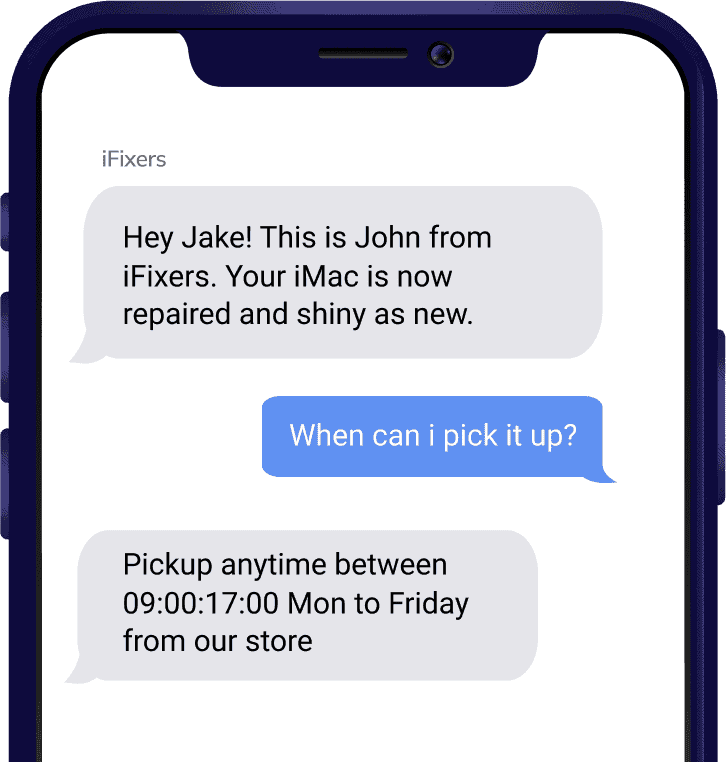
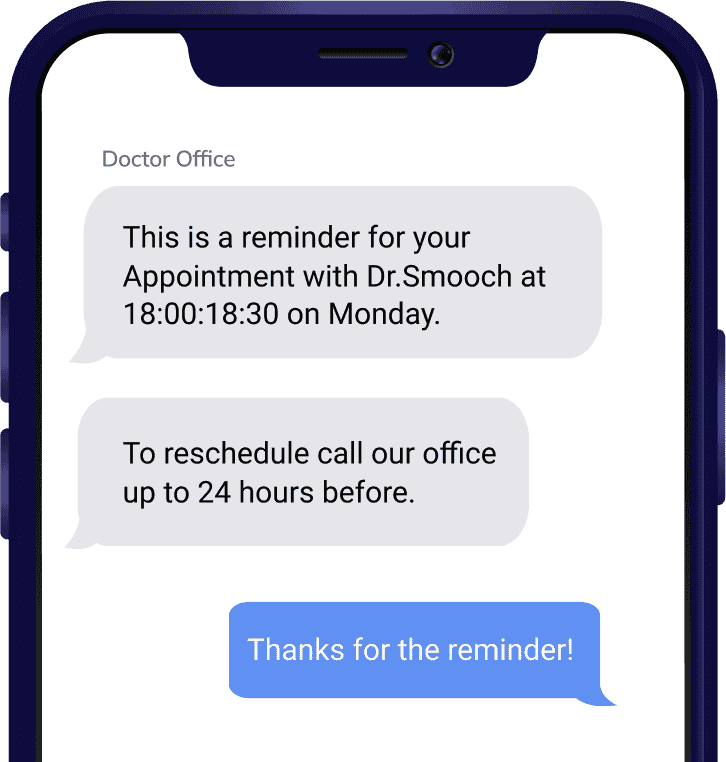
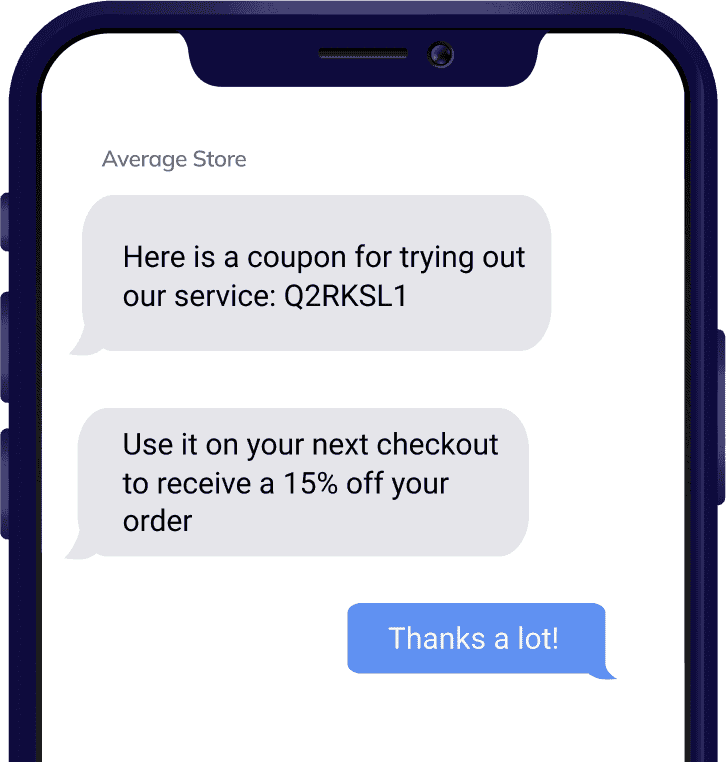
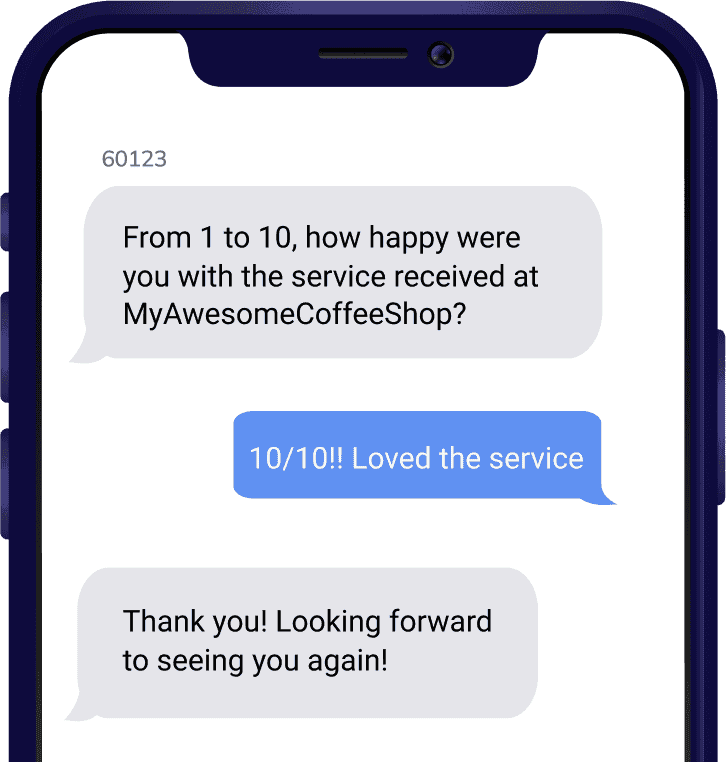

Our text message API is designed to be adaptable, allowing you to integrate SMS capabilities into your preferred programming language and framework.

Experience the reliability of our SMS delivery infrastructure, ensuring your messages reach their destination safely and in a timely manner without ever have to worry.

Whether you need to send a few messages or millions, our message API can handle your volume needs, providing a scalable solution to meet your requirements.

With our SMS API, you can reach users globally in just minutes. Sign up for free, get your API key, and start leveraging the power of SMS communication.
As of 2018, South Korea had over 63 million mobile subscribers, which greatly expands the potential for utilizing Bulk SMS in the country. With over 51 million residents, the mobile penetration rate reaches an impressive 123.8%. As the rate of mobile subscriptions continues to grow, there is a significant opportunity for businesses to utilize A2P traffic. Without partnering with a professional service provider like SMS.to, you risk missing out on a vast market for your Bulk SMS campaign in South Korea. Expand your reach and increase your ROI by partnering with SMS.to today.
Leverage the power of SMS.to’s top-notch SMS API for South Korea. Our scalable and reliable SMS API seamlessly integrates with your existing systems, providing robust connectivity to build solid apps and software solutions. With our SMS API, you can send SMS messages to every network in the Republic Of Korea with ease.
curl --location 'https://api.sms.to/sms/send' \
--header 'Authorization: Bearer <api_key>' \
--header 'Content-Type: application/json' \
--data '{
"message": "This is test and \n this is a new line",
"to": "+35799999999999",
"bypass_optout": true,
"sender_id": "SMSto",
"callback_url": "https://example.com/callback/handler"
}'
<?php
$curl = curl_init();
curl_setopt_array($curl, array(
CURLOPT_URL => 'https://api.sms.to/sms/send',
CURLOPT_RETURNTRANSFER => true,
CURLOPT_ENCODING => '',
CURLOPT_MAXREDIRS => 10,
CURLOPT_TIMEOUT => 0,
CURLOPT_FOLLOWLOCATION => true,
CURLOPT_HTTP_VERSION => CURL_HTTP_VERSION_1_1,
CURLOPT_CUSTOMREQUEST => 'POST',
CURLOPT_POSTFIELDS =>'{
"message": "This is test and \\n this is a new line",
"to": "+35799999999999",
"bypass_optout": true,
"sender_id": "SMSto",
"callback_url": "https://example.com/callback/handler"
}',
CURLOPT_HTTPHEADER => array(
'Authorization: Bearer <api_key>',
'Content-Type: application/json'
),
));
$response = curl_exec($curl);
curl_close($curl);
echo $response;
var https = require('follow-redirects').https;
var fs = require('fs');
var options = {
'method': 'POST',
'hostname': 'api.sms.to',
'path': '/sms/send',
'headers': {
'Authorization': 'Bearer <api_key>',
'Content-Type': 'application/json'
},
'maxRedirects': 20
};
var req = https.request(options, function (res) {
var chunks = [];
res.on("data", function (chunk) {
chunks.push(chunk);
});
res.on("end", function (chunk) {
var body = Buffer.concat(chunks);
console.log(body.toString());
});
res.on("error", function (error) {
console.error(error);
});
});
var postData = JSON.stringify({
"message": "This is test and \n this is a new line",
"to": "+35799999999999",
"bypass_optout": true,
"sender_id": "SMSto",
"callback_url": "https://example.com/callback/handler"
});
req.write(postData);
req.end();
require "uri"
require "json"
require "net/http"
url = URI("https://api.sms.to/sms/send")
https = Net::HTTP.new(url.host, url.port)
https.use_ssl = true
request = Net::HTTP::Post.new(url)
request["Authorization"] = "Bearer <api_key>"
request["Content-Type"] = "application/json"
request.body = JSON.dump({
"message": "This is test and \n this is a new line",
"to": "+35799999999999",
"bypass_optout": true,
"sender_id": "SMSto",
"callback_url": "https://example.com/callback/handler"
})
response = https.request(request)
puts response.read_body
import http.client
import json
conn = http.client.HTTPSConnection("api.sms.to")
payload = json.dumps({
"message": "This is test and \n this is a new line",
"to": "+35799999999999",
"bypass_optout": True,
"sender_id": "SMSto",
"callback_url": "https://example.com/callback/handler"
})
headers = {
'Authorization': 'Bearer <api_key>',
'Content-Type': 'application/json'
}
conn.request("POST", "/sms/send", payload, headers)
res = conn.getresponse()
data = res.read()
print(data.decode("utf-8"))
OkHttpClient client = new OkHttpClient().newBuilder()
.build();
MediaType mediaType = MediaType.parse("application/json");
RequestBody body = RequestBody.create(mediaType, "{\r\n \"message\": \"This is test and \\n this is a new line\",\r\n \"to\": \"+35799999999999\",\r\n \"bypass_optout\": true,\r\n \"sender_id\": \"SMSto\",\r\n \"callback_url\": \"https://example.com/callback/handler\"\r\n}");
Request request = new Request.Builder()
.url("https://api.sms.to/sms/send")
.method("POST", body)
.addHeader("Authorization", "Bearer <api_key>")
.addHeader("Content-Type", "application/json")
.build();
Response response = client.newCall(request).execute();
package main
import (
"fmt"
"strings"
"net/http"
"io/ioutil"
)
func main() {
url := "https://api.sms.to/sms/send"
method := "POST"
payload := strings.NewReader(`{`+"
"+`
"message": "This is test and \n this is a new line",`+"
"+`
"to": "+35799999999999",`+"
"+`
"bypass_optout": true,`+"
"+`
"sender_id": "SMSto",`+"
"+`
"callback_url": "https://example.com/callback/handler"`+"
"+`
}`)
client := &http.Client {
}
req, err := http.NewRequest(method, url, payload)
if err != nil {
fmt.Println(err)
return
}
req.Header.Add("Authorization", "Bearer <api_key>")
req.Header.Add("Content-Type", "application/json")
res, err := client.Do(req)
if err != nil {
fmt.Println(err)
return
}
defer res.Body.Close()
body, err := ioutil.ReadAll(res.Body)
if err != nil {
fmt.Println(err)
return
}
fmt.Println(string(body))
}
SMS integrations for your preferred platform


Get free Call & SMS credits on Sign-Up
